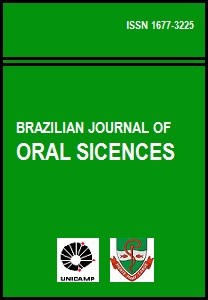Abstract
Torque teno virus (TTV), a novel DNA virus resides in peripheral blood mononuclear cells and replicates when these cells get activated. The TTV replication shifts the immunobalance. Aim: To determine the presence of TTV in the gingiva of patients with aggressive periodontitis, patients with chronic periodontitis, and healthy controls, and to correlate the presence of TTV with probing pocket depth and clinical attachment level. Methods: Forty-two subjects (22 males and 20 females) aged 21 to 55 years were recruited for this study. Subjects were stratified into aggressive periodontitis (Group I), chronic periodontitis (Group II) and healthy controls (Group III). Gingival tissue biopsy was taken from all the subjects and the presence of TTV was analyzed using PCR and 2% agarose gel electrophoresis. Results: TTV was identified in half of the subjects and more number of subjects with periodontitis have TT virus compared to controls. There was significant association between presence of TT virus and pocket depth, clinical attachment level. Conclusions: The findings from the present study shows that there was no significant association between TT virus and periodontitis, even though it was isolated from more number of subjects with aggressive periodontitis, and TTV was associated with pocket depth and clinical attachment level. These findings need to be investigated in further studies.The Brazilian Journal of Oral Sciences uses the Creative Commons license (CC), thus preserving the integrity of the articles in an open access environment.
Downloads
Download data is not yet available.

